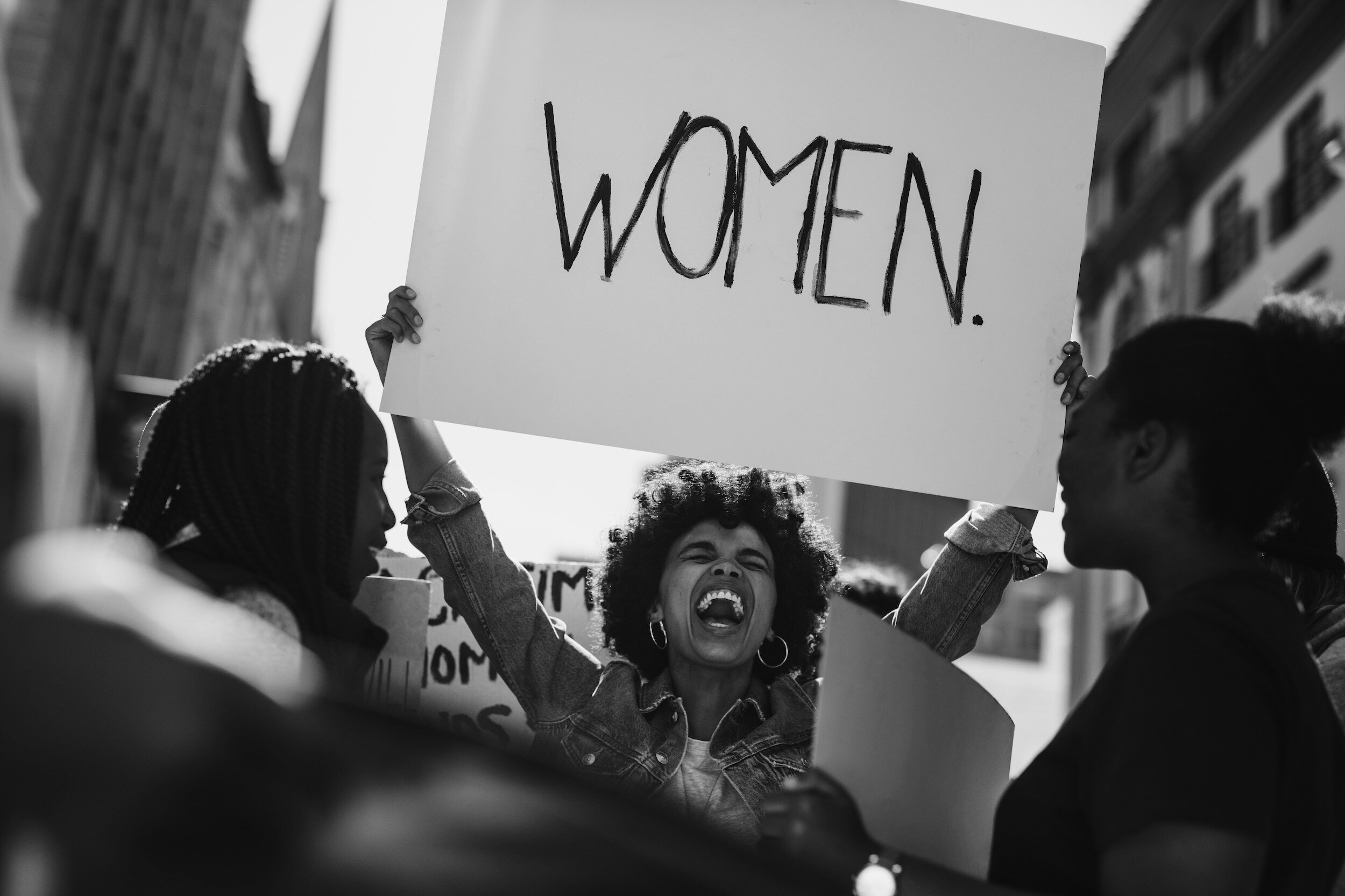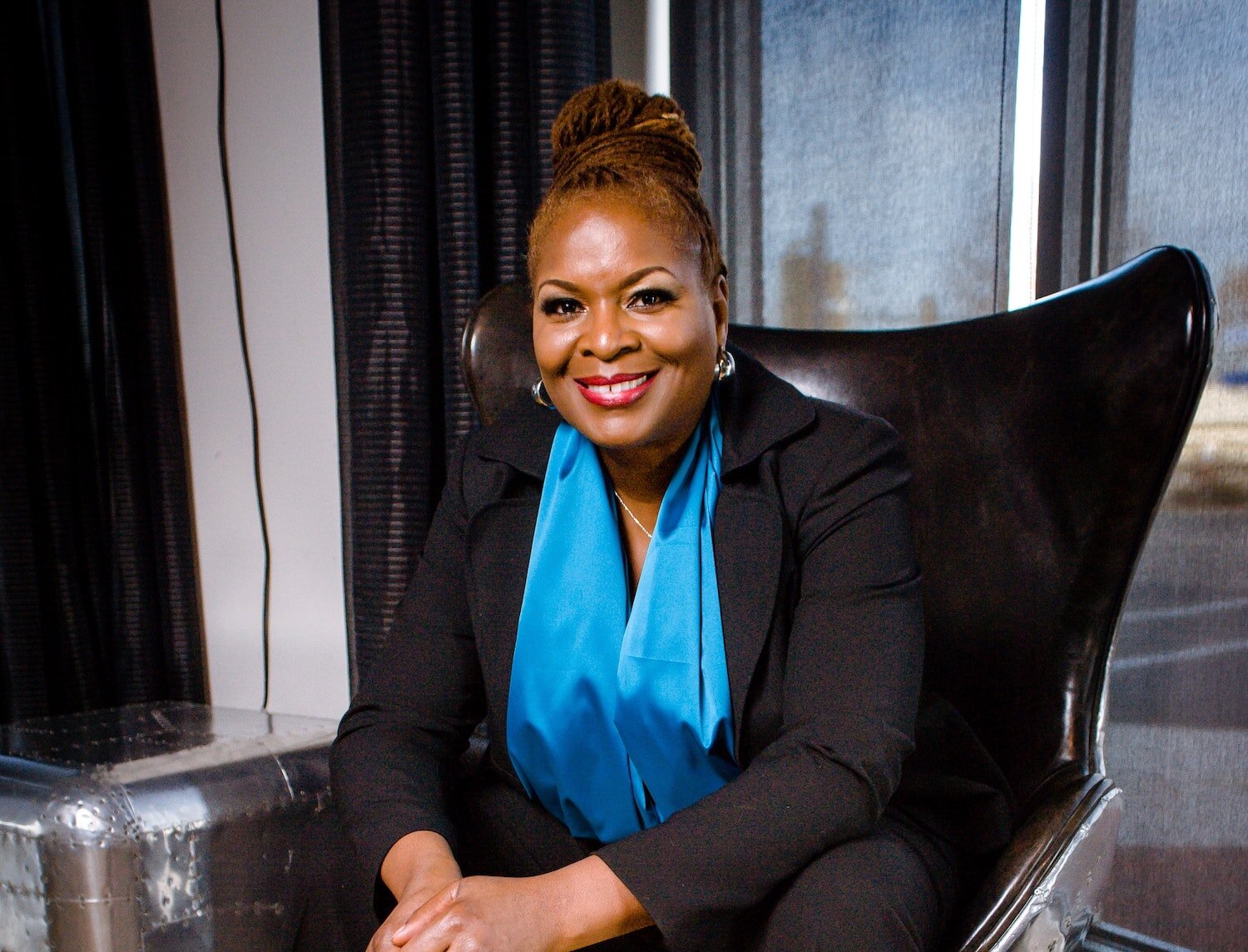
Argy-Bargy
Noun | är-jē-ˈbär-jē
Chiefly British
Definition: A vigorous discussion or dispute.
#challengeaccepted
Argy-Bargy was born when I noticed a number of women sharing black and white photographs and hashtags such as the one above and #womensupportingwomen on social media platforms. I couldn’t see how we were championing each other by nominating others to share a photo and then my (surprisingly) feminist husband pointed out what was really going on. We weren’t supporting each other. We were objectifying each other.
So I decided to build an inclusive, exclusive network of people who identify as women to discuss myths, misconceptions, and stereotypes in the workplace.
For one hour each month, this is a place for storytelling, for sharing experiences, and to hear others’ experiences. A place for women at different levels of organizations from entry-level to the C-Suite to connect, mentor and receive mentoring. For women of different cultures and backgrounds to speak and be heard and understood. A place to truly support other women by discussing ideas and strategies to help create a more equitable workplace.
I don’t have all the answers so I’m hoping that Ken Blanchard was right when he said, “None of us is as smart as all of us.”
“Each time a woman stands up for herself, without knowing it possibly, without claiming it, she stands up for all women.”
— Maya Angelou

Age x Gender: The Double Whammy
Women are already facing an uphill battle when it comes to professional success, but age is yet another thing that stands in the way.
Age discrimination against older women is often subtle. Whether it’s being removed from projects, replaced by younger coworkers or not offered professional development opportunities, the impact on a woman’s career can be devastating. And then there’s the menopause.
Age discrimination often goes unaddressed in the workplace because of the way society views older workers. An AARP study found that while 90% of older workers say that age discrimination is common, just 3% have made a formal complaint to a supervisor or HR department. For women, the shame and fear around their age makes them cautious in pointing out damaging biases.
But ageism cuts both ways. Glassdoor released a 2019 diversity and inclusion survey in the U.S., UK, France, and Germany that found younger employees are more likely than older employees to have witnessed or experienced ageism at work. Whether young women are not taken seriously or assumed to be taking time off to have children at some point, the implications can seriously damage a woman’s career from the outset.
As organizations look to rebuild and rehire with a focus on diversity and inclusion, addressing age discrimination is a critical part to supporting women of every age.

#MeToo
Research in 2018 found that following the #MeToo movement, men were significantly more reluctant to interact with their female colleagues. The researchers found:
• 27% of men avoid one-on-one meetings with female co-workers.
• 21% of men said they would be reluctant to hire women for a job that would require close interaction (such as business travel).
• 19% of men would be reluctant to hire an attractive woman.
But it’s not just men. Women also appear to be increasingly cautious of hiring women. Results found that more than 10% of men and women said they expected to be less willing than before to hire attractive women.
As we have previously discussed, women need men as professional sponsors and mentors in order to advance in male-dominated fields. But men are expressing a reluctance to take on this role, separating themselves from women instead. According to the New York Times, even some leaders at Davos said they were mentoring women less or not at all since #MeToo.
At best, it’s another setback to women’s progress. At worst, a handy excuse for men to roll back the clock and put women in their place.
Join us for our penultimate Argy-Bargy session on May 12 at 12:00 pm ET, 11:00 am CT, 9:00 am PT, 6:00 pm in Capetown.

You Look Great Today - But You Should Wear Your Hair Down
In 1982, Ann Hopkins was senior manager at PwC’s Office of Government Services and the only woman among 88 candidates being considered for partnership. Despite success in bringing business to the company, and high praise from other partners as an "outstanding professional" with a "strong character, independence, and integrity," her candidacy was put on indefinite hold. She eventually resigned and sued the company for sex discrimination, arguing that her lack of promotion came after pressure to walk, talk, dress, and act more "femininely." In 1989, the Supreme Court ruled that PwC had discriminated based on sex stereotypes.
Almost 40 years on and in a survey of 2,000 office-based staff working from home in the two months from March 2020 to July 2020, found 35 per cent of women reported at least one sexist demand from their employer, with the most common being inappropriate comments about the way they dressed for video meetings. Over a third were asked to wear more make-up or do something with their hair, while 27 per cent were asked to dress more provocatively.
How can we have moved backwards?
Join us via Zoom on Wednesday, April 14, 2021 at 12:00 pm ET, 9:00 am PT, 5:00 pm UK to learn more, hear women’s stories, and discuss strategies to overcome this challenge we currently face.

The Gaslighter
The term Gaslighter has become more and more popular in recent years. Generally, it is used in relation to politics and personal relationships, but it is a more common form of workplace harassment than we think and having a gaslighter as your supervisor or coworker is challenging.
Gaslighters create their own reality. In their world, they’re always right, and others (anyone they decide they want to dominate) are wrong, misguided, and uninformed. The goal of a gaslighter is to deceive and confuse to gain power over you.
Gaslighting is underreported in the workplace as it isn’t always easily identifiable and because gaslighters, who are particularly skilled at manipulation, may make the victim feel as if it was all his or her fault. Working for a boss with gaslighting tendencies or having a gaslighting coworker with authority over you can diminish your confidence and leave you feeling paranoid and off kilter.
If you’ve ever felt that someone was making you doubt yourself, your capabilities, and your sense of reality, then maybe you’ve been the victim of gaslighting.
Join us via Zoom on Wednesday, March 10, 2021 at 12:00 pm ET, 9:00 am PT, 5:00 pm UK to learn more, hear women’s stories, and discuss strategies to overcome this challenge we currently face.
Click on the session title to attend only this session.

The Angry Black Woman
Black women are discriminated against for being Black and for being women but exist in both identities at all times. They face a vast array of microaggressions at work, including being more likely to be stereotyped as “angry” when they are as assertive as other populations.
Despite the challenges and barriers in their way, Black women are highly educated (Black women enroll in college at higher rates than men overall and, most notably, at higher rates than white men), ambitious (as many Black women as white men say that they want to become top executives), and they are the fastest-growing entrepreneurial group among women.
Black women’s drive to succeed is often not just for themselves, but also to lift up their communities. About half of Black women who want to become top executives (more than any other racial or ethnic group of women) say they are motivated by the desire to be role models for others like them, and more than half also say that they are driven by a desire to influence the culture of their workplace. Again, they are more likely than any other racial or ethnic group of women to name this as a motivation.
However, their achievements in the workplace are often in spite of glaring inequalities. Black women have a harder and worse experience than almost everyone else. They’re overrepresented in minimum-wage jobs, hired and promoted more slowly, they are often the only Black woman in the room, and they’re paid less than men and most other groups of women.
Join us via Zoom on Wednesday, February 10, 2021 at 12:00 pm ET, 9:00 am PT, 5:00 pm UK to learn more, hear women’s stories, and discuss strategies to overcome this challenge we currently face.
Click on the session title to attend only this session.

The Imposter
Feel like a fraud?
In our society there's enormous pressure to achieve. There can be a lot of confusion between approval and love and worthiness so self-worth can become contingent on achieving.
Most people experience some self-doubt when facing new challenges but those of us with imposter syndrome have an all-encompassing fear of being found out not to have what it takes, even when all the evidence points in the other direction.
Imposter syndrome and perfectionism often go hand-in-hand. We think every task has to be done perfectly and we rarely ask for help. And the result? We might procrastinate, putting off an assignment out of fear that we won't be able to complete it to the necessary high standards. Or, we might over-prepare, spending much more time on a task than is necessary.
Afraid of being discovered as a fraud, we go through a nightmare to pull off a project perfectly (even though perfect doesn’t exist). If we succeed, we begin to believe all that anxiety and effort paid off and eventually, we believe our successes must be due to that self-torture. And the cycle begins.
Join us via Zoom on Wednesday, January 13, 2021 at 12:00 pm ET, 9:00 am PT, 5:00 pm UK to learn more, hear women’s stories, and discuss strategies to overcome this challenge we currently face.
Click on the session title to attend only this session.

The Shecession
According to The Guardian, from February 2020 to May 2020 11.5 million women in the United States lost their jobs compared with 9 million men due to measures intended to stop the spread of COVID-19. By the end of April, a decade of women’s employment gains had been erased.
Women, especially women of color are more vulnerable to sudden losses of income because of the gender pay gap and we are more dependent on childcare and school to be able to work.
Join us on Wednesday, December 10, 2020 at 12:00 pm ET, 9:00 am PT, 5:00 pm UK to learn more, hear women’s stories, and discuss strategies to overcome this challenge we currently face.
Click the session title to attend only this event.

The Gender Wars of Household Chores
Multiple surveys and studies have documented men’s changing attitudes toward women in recent years that show there is almost universal support for women to pursue careers and political office, and attitudes have become far more accepting around gender identity. But when it comes to the home front, traditional values dominate.
In the U.S., women spend, on average, about 4 hours a day on unpaid work, compared with about 2.5 hours for men according to data from the Organization for Economic Cooperation and Development.
In addition, women are more likely to carry the mental load for the family. For example, if you have a partner at home who is willing to share household chores but waits for you to ask him or her to do things, they are viewing you as the manager of household chores leaving it up to you to know what needs to be done and when.
The problem is that planning and organizing things is already a full-time job as you are always having to remember. This is called the mental load and represents 75% of the work. And because it’s unpaid, it’s undervalued and underreported.
Join us via Zoom on Wednesday, November 11, 2020 at 12:00 pm ET, 9:00 am PT, 5:00 pm UK to learn more, hear women’s stories, and discuss strategies to overcome this challenge we currently face.
Click the session title to attend only this event.

You’re Too Emotional
The belief that women are more emotional than men is one of the strongest gender stereotypes and presents a fundamental barrier to women's ability to ascend to and succeed in leadership roles. Perceptions of emotionality may be particularly detrimental to women when they are in high-status positions in the workplace.
Emotions are displayed by both men and women in the workplace but gender–emotion stereotypes create two complex minefields that female, but not male, leaders have to navigate in order to be successful: Identifying not only how much emotion but also what kinds of emotions should be displayed.
Female leaders can be penalized for even minor or moderate displays of emotion, especially when the emotion conveys dominance (e.g., anger or pride) but being emotionally unexpressive may also result in penalties because unemotional women are seen as failing to fulfill their warm, communal role as women.
It seems we can’t win.
Join us via Zoom on Wednesday, October 14, 2020 at 12:00 pm ET, 9:00 am PT, 5:00 pm UK to learn more, hear women’s stories, and discuss strategies to overcome this challenge we currently face.
Click the session title to attend only this event.

The Virtual Golf Club
An estimated 90% of Fortune 500 CEOs play golf, as have almost all of the US presidents. Executives who play golf make an average of 17% more than those who don't. The idea of business deals being done on the golf course might be a cliché but business golf is thriving. However, for a number of reasons, women aren’t historically part of this elite informal network.
Now, we have a different version of the golf club - the virtual golf club.
Back in the day when we worked in offices, women had the opportunity to informally connect with senior leadership (male and female) through in-person meetings, open office doors, the kitchen or water cooler. Now, many of us join those who always worked remotely in having to schedule formal appointments for the opportunity to informally connect with senior executives. And the chance of actually getting on their calendar? Probably the same as the chance of being invited to play golf with them.
Join us via Zoom on Wednesday, September 9, 2020 at 12:00 pm ET, 9:00 am PT, 5:00 pm UK to learn more, hear women’s stories, and discuss strategies to overcome this challenge we currently face.
Click the session title to attend only this event.
